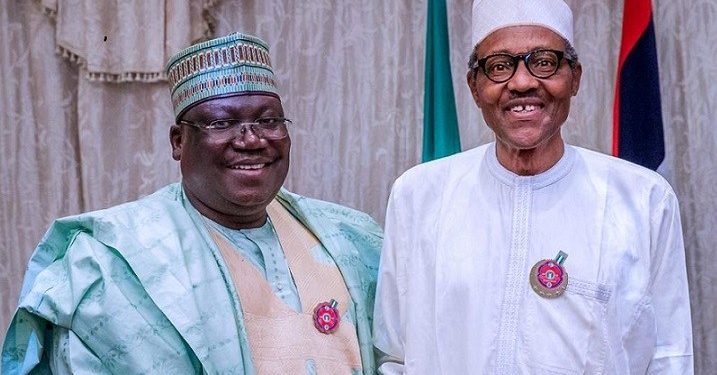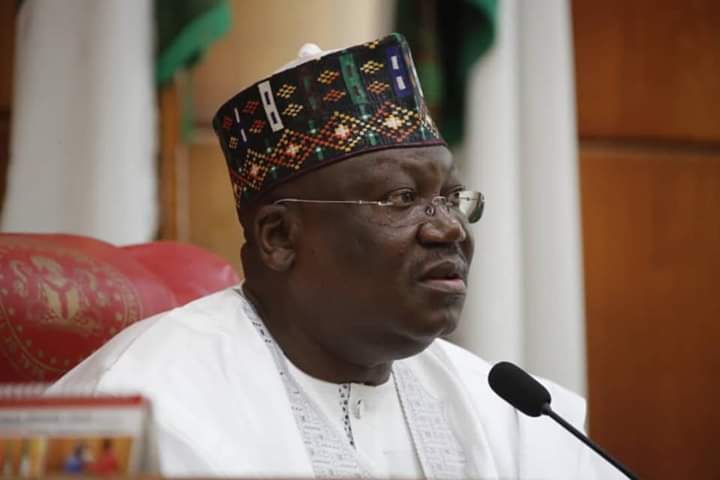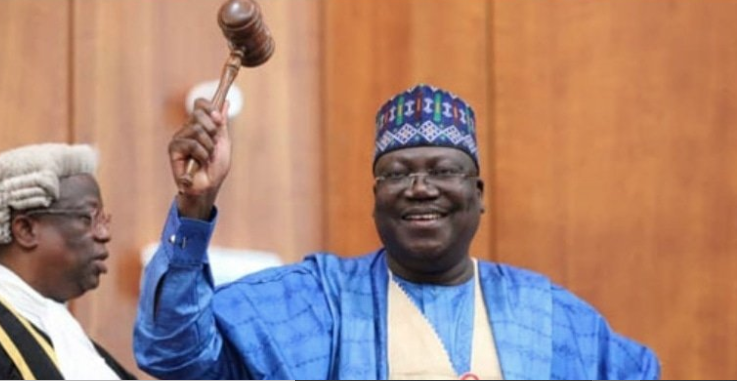….they mounted poles and promised to return in 2 weeks, it’s now 10 years no news….
….I only saw my lawmaker last during campaigns says community leader
…primary, secondary school students sit on barefloor to learn
By Emmanuel Bagudu
The ZIP is an intervention fund started by the Olusegun Obasanjo administration in 1999.designated for the execution of projects across the 469 constituencies across the country in every budget cycle. A sum of N100 billion is usually appropriated for the ZIP in the annual budget.
Members of the two legislative chambers of the National Assembly are expected to nominate projects to be sited in their constituencies to the tune of the sum allocated to them in the ZIP.
However, recently the utilisation of the ZIP has pitched the parliament against the ICPC, after President Muhammadu Buhari, while speaking at a National Summit on “Diminishing Corruption in the Public Service” , an event organised by the ICPC in collaboration with the Office of the Secretary to the Government of the Federation (SGF), said one trillion Naira has been spent by the lawmakers on constituency projects in the last 10 years without commensurate results.
The House apparently angered by the president’s allegation vehemently denied such a ridiculous amount was made available for constituency outreach projects. They claimed less than 30percent was released by the executive.
But on ground in three North West states of the federation there was virtually nothing to show for even the 30percent they claimed was released.
Littered across the three states are abandoned zonal intervention projects.
A lot of communities are suffering in Northwestern Nigeria due to negligence on the part of government at both the executive and legislative arm. TNG’s Northern correspondant Emmanuel Bagudu who toured Kaduna, Kano and Jigawa has a lot to share in this piece.
Exactly four years ago, the Federal government through the house of representatives allocated N110 million for water intervention in Kaduna and Kano states. The money was later captured in the 2016/2017 budget.
The water intervention project was the construction of solar powered boreholes in communities in line with the demands of Sustainable Development Goal-SIX (SDG 6).
In Kaduna, Sabon Gida, Gonin Gora, Ungwar Boro, Kudenda and Ungwar Yelwa in Chikun Local Government Area, and Hayin Dogo and Kofar Gaya in Zaria Local government areas were the beneficiaries.
While in Kano, Danjaka in Bumai Kunchi LGA, Gwale and Kano Municipal were beneciaries.
It’s 2020 now and it seems the N110 million was either mismanaged or sqandered by the lawmakers in charge using contractors as fronts.
TNG visited Ugwan boro in Kaduna and Kofar Gaya in Zaria still in Kaduna state and the only water facilities there are those built by the state government. “Governor Nasir Elrufai in 2017 was forced to award a water project contract in the whole of Zaria and environs due to the hardships citizens are facing as a result of absence of potable water” Abdulraman Mohammed a Zaria resident told TNG.
Before going to Zaria, Sabon Tasha in Chukun local government the largest settlement very close to the Kaduna metropolis was visited by TNG. Sabo as it is fondly called is made up of many communities including Ungwa boro, one of the beneficiaries of the water constituency contract. At the moment residents of Agwan boro depend on water vendors who buy and sell to them from private boreholes. One of the residents a restaurant owner who pleaded anonymity told TNG she has heard nothing about constituency projects. The only water project contract she heard of was the ones awarded by the state government.
TNG ran into some activists who also made case for the deplorable state of educational system in the state with reference to Sabo.
Government Day Secondary School Sabon Tasha Kaduna popularly called “Day Sabo” remains in a sorry state. All students in the school sit on barefloor to learn. Same with LEA Primary school Chikaji where students seat on barefloor and teachers use charcoal to teach.
After so many reports and plea from concerned persons to the Kaduna state government, the school is still not a place to learn as students in hundreds seat on bare floor having lessons.
TNG was led by an old student of the school now an activist Victor Bobai who was almost in tears while complaining of government’s negligence of his alma-mata. “A healthy learning environment in schools is only possible when students and teachers are provided with adequate facilities…” Mr Bobai said.
“These are weaker structures and very horrible facilities , students don’t have seats…. This shows deliberate negligence on the part of government…. He added.
“Day Sabo” is one of the oldest secondary schools in the state. Sabon Tasha is also one of the hybrow areas within Kaduna metropolis, it hosts the Federal Polytechnic’s (KADUNA POLY) faculty of Administration as well as the famous Kaduna Oil refinery and of course the NNPC staff quarters. Aside from this, a lot of private sector investments are situated within Sabon Tasha, this makes the existence of such delapidated schools strange.
“I want to use this opportunity to bring to the notice of my friends and well wishers that, GDSS Sabon Tasha in Chikun LGA of Kaduna state, Nigeria is in a pitiable condition and to also use this medium to appeal that attention be paid towards the rehabilitation of this school. The experience of these students here is disheartening because almost all the classrooms are not in good condition for learning of which they (students) feel very uncomfortable in paying good attention to learning. Majority of these students sit on the floor while receiving lectures. Even the staff room and Principal office are not excluded as these rooms are flooded when it rains.” Bobai said.
He extended his plea to his classmates and other old students to intervene in any way they can.
KANO
A state with 44 local government councils, Kano can boost of having the highest number of Lawmakers in Nigeria. But this is not reflecting in the lives of it’s constituents. The communities visited by TNG also complained of negligence. Gwale one of the beneciaries of the water constituency project now depends on a greenish abandoned dam which was constructed in place of the proposed solar powered borehole.
Another village called Gada was visited by TNG. Gada is the last village in Kano sharing border with Jigawa state. The three communities that makes up Gada Village depend on only one primary school with 3 classes and a nomadic school situated under a tree.
The three communities has only one functional borehole. TNG approached the community leader Malam Musa Sanusi who narrated how policititians mostly lawmakers use to come during campaigns and play over their intelligence. “….You see this Poles? They have been mounted for 10years. The day they brought these poles they told us we will get electricity in two weeks…this is 10 years now noting has happened….our children seat under trees to learn…..” Sanusi said. Asked whether he has contact with his representative at National level, “….the last time we saw him was during campaigns Sanusi said.
JIGAWA.
Kiyawa local government was the last place TNG visited to track the alleged scam surrounding constituency funds meant for the purchase of Motorcycles for youths. It could be recalled that in late 2017, the sum of N116million was released as constituency funds from the executive. The money was awarded for social interventions contract in Gombe, Benue and Jigawa. Kiyawa LGA in Jigawa was the direct beneficiary. TNG met a couple of youths and motorcycle operators in Kiyawa who narrated their knowledge about the contract. “There was a scam, the money was released but there was a scam….” Isah Bala one of the leaders of Motorcycles operators in Kiyawa told TNG. Bala added that one Hamza Barau was the one given the contract of the purchase of Motorcycles to Kiyawa people but unfortunately he didn’t execute the contract. He said Mr Barau has so far been taken to court.
All these continuous squandering of constituency funds in Nigeria has continued to cause serious pains and affliction for the citizens as seen in Kaduna, Kano and Jigawa. The Independent Corrupt Practices and Other Related Offences Commission (ICPC), has been engaged in naming and shaming politicians engaged in the act of not executing Constituency projecs, It is hoped that this will encourage the Media, the Human right community as well as the civil society communities to do same.




